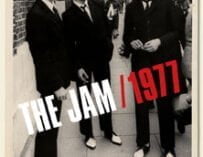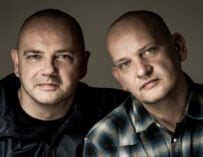
London Calling: the cover image made famous by Pennie Smith and the bass that features in the exhibition.
Joe Strummer’s writer’s block, a change in musical direction and Paul Simonon’s famous photograph. It’s 40 years of ‘London Calling’
In December 1979, with the 70s drawing to a close, marking the end of a decade that had given birth to disco, glam rock and punk. One of the most revered bands leading the latter scene unleashed their third album. The Clash’s London Calling was a distinct move away from the raucous punk sound of the band’s previous two albums of The Clash and Give ‘Em Enough Rope. Although much of the lyrical content remained the same, the music incorporated R&B and Jazz as The Clash broadened their musical horizons into post-punk, a style that would develop in the coming decade, largely transitioning into new wave.
To mark the anniversary of the album many music lovers and fans see as The Clash’s greatest album, The Museum Of London is hosting a free exhibition beginning 15 November and running until spring 2020. On display will be draft lyrics, stage clothing, lead singer Joe Strummer’s typewriter and notebooks, photos and films. The collection also includes Paul Simonon’s broken Fender Precision bass guitar made famous by the iconic image on the album cover taken by photographer Pennie Smith. As an added extra for fans, Sony Music will release a 120-page hardback scrapbook with a rerelease of the album containing lyrics, notes, photos and other unseen items.
“London Calling is The Clash’s defining album, a rallying call for Londoners and people around the world,” said Beatrice Behlen, senior curator of fashion and decorative arts at the Museum Of London. “The album’s lyrics reflected contemporary concerns, many of which are still relevant today, as it moved away from traditional punk by adopting and reworking much wider musical influences. At the Museum of London, we tell the stories of our capital through the objects and memories of the people who have lived here. This display will provide a brand new, exciting and vibrant take on this, showcasing rarely seen personal objects and telling the incredible story of how London Calling was, and for many still is, the sound of a generation.”


































Related Articles